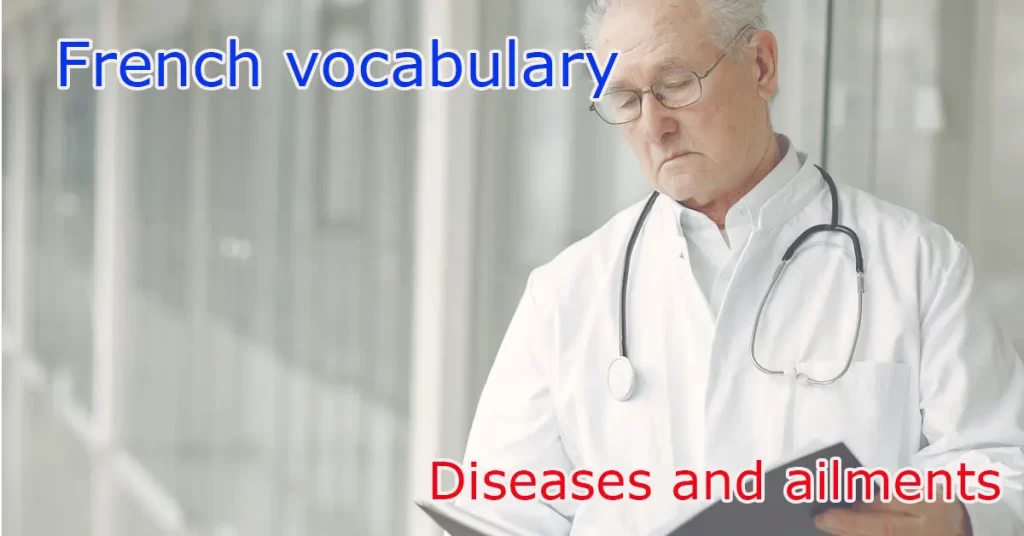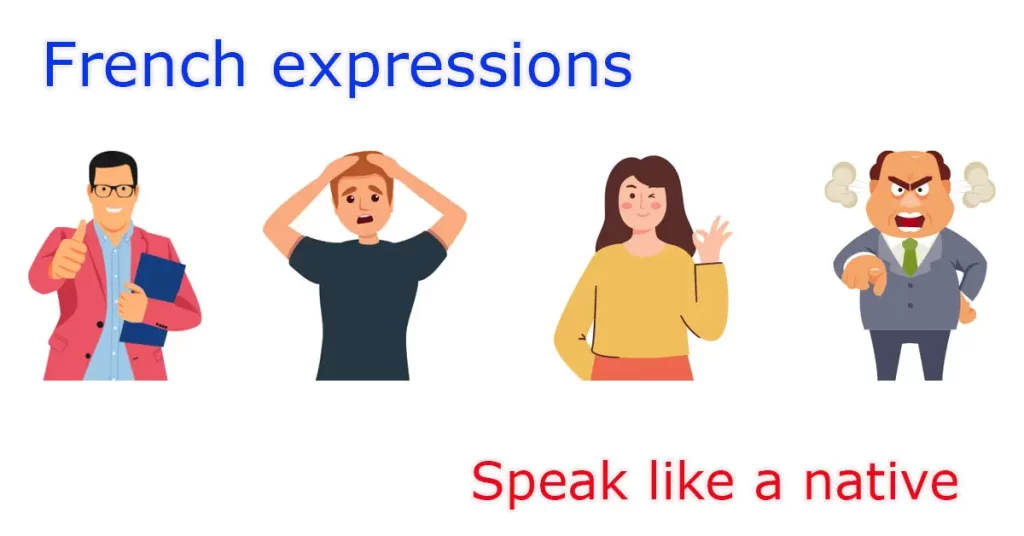Learn and understand how to use verbs in French
When it comes to learn a new language, verbs are one of the first thing you will have to learn, so you can start to make sentences and have small conversations. In this lesson, I will explain to you how to use verbs in French, and what you need to know about them.
Learning verbs can be overwhelming for a beginner learner, but with practice and hard work, you will remember how it works. The bad news is that, yes it’s complicated even for French native speaker. Many of us are still doing grammatical and conjugation mistake, especially when we need to write.
What is a verb?
Verbs are a category of words that allow to express an action or state of being, related to the subject of a sentence (a noun or pronoun). They make it possible to relate the different components of the sentence. Verbs can express not only actions or states, but also concepts or thoughts. There are regular and irregular verbs as in English.
Examples of action verbs at the present tense:
Je cours trois fois par semaine = I run three times per week.
Je mange tous les jours avec mes parents = I eat everyday with my parents.
Nous apprenons le français à l’école = We learn French at school.
Examples of stative verbs at the present tense:
Je deviens bon au basket. = I become good at basketball.
Mon chien semble malade. = My dog seems sick.
Paul a l’air bizarre aujourd’hui. = Paul looks weird today.
There are several categories of verbs, and verbs can take different forms depending on their grammatical function in the sentence as well as on the mode and tense in which they are conjugated.
Here are the definitions of the few grammatical terms corresponding to the different forms of the verb that you will encounter while learning French.
Action verbs and state verbs
In French grammar, most verbs are classified into two categories: action verbs and state verbs.
Action verbs express an act or activity done or undergone by the subject. They can anchor the action in time or indicate a specific event. They can have direct or indirect object complements.
In French, there are many action verbs, but you don’t need to remember them all, just the more common one.
Let’s see some common French action verbs :
| French action verbs | English meaning |
| chanter | to sing |
| courir | to run |
| danser | to dance |
| écrire | to write |
| lire | to read |
| manger | to eat |
| marcher | to walk |
| parler | to speak |
| sauter | to jump |
Examples:
Je lis une histoire à mes enfants. = I read a story to my kids.
The verb to read has a direct object complement: a story.
Il mange des pizzas avec ses amis. = He eats pizzas with his friends.
The verb to eat has a direct object complement: pizzas and an indirect object complement: with his friends.
When you use state verbs, they indicate that the subject has a particular characteristic, they express the state or way of being, the change of state or the becoming of someone or something.
They do not express any action and do not give information about duration. They don’t have direct or indirect object complements, but they can be accompanied by subject attributes.
Let’s see some common French state verbs :
| French state verbs | English meaning |
| avoir l’air | to look (like) |
| être | to be |
| demeurer | to remain |
| devenir | to become |
| paraître | to appear |
| s’appeler | to be called |
| savoir | to know |
| sembler | to seem |
A state verb can always be replaced by the verb “être” (to be).
Examples:
Ce chien semble perdu = This dog seems lost. / Ce chien est perdu. = This dog is lost.
Martin a l’air fatigué. = Martin looks tired. / Martin est fatigué. = Martin is tired.
Je suis professeur d’anglais. = I am an English teacher.
Infinitive verbs
The infinitive is a non-conjugated form of the verb, like the participles. It is a form of the verb that bears the marks of neither time, number nor person.
In French, infinitive verbs are ending with:
- -er (parler – to talk)
- -ir (finir – to finish)
- -re (comprendre – to understand)
- -oir (savoir – to know)
There are many words and verb constructions in French that are followed by the infinitive form.
Examples:
Mes parents aiment partir en vacances. = My parents like to go on vacation.
Je mange des fruits tous les jours pour rester en bonne santé. = I eat fruit every day to stay healthy.
French verbs are classified into three groups to make it easier to learn how to conjugate them:
Verbs of the 1st group:
The 1st group includes all the regular verbs ending with “-er”, such as, aimer (to love), chanter (to sing), manger (to eat), parler (to talk), except one verb, aller (to go) which belongs to the third group because it’s an irregular verb.
Verbs of the 2nd group:
The 2nd group includes regular verbs whose infinitive ends with “-ir”, and whose present participle is formed by -issant.
Examples:
- agir (to act) – present participle = agissant
- choisir (to choose) – present participle = choisissant
- finir (to finish) – present participle = finissant
- guérir (to heal) – present participle = guérissant
- réussir (to succeed) – present participle = réussissant
Verbs of the 3rd group:
The verbs in the 3rd group are the irregular verbs that are neither in the 1st nor in the 2nd group (only 1 from 1st group: aller – to go). They can be recognized with the endings of their infinitive form.
They can end with -oir, -re, and -ir (when the present participle is -ant and not -issant).
Example with -oir:
- pouvoir (to can)
- savoir (to know)
- voir (to see),
- vouloir (to want)
Example with -re:
- attendre (to wait)
- comprendre (to understand)
- croire (to believe)
- mettre (to put),
- prendre (to take)
Example with -ir:
- courir (to run) – present participle = courant
- découvrir (to discover) – present participle = découvrant
- offrir (to offer) – present participle = offrant
- mourir (to die) – present participle = mourant
To know if a verb ending with -ir belongs to the 2nd or 3rd group, simply change it to the present participle form, and use the preposition “en”
Agir (to act) – present participle = en agissant – en agiant → 2nd group
Finir (to finish) – present participle = en finissant – en finant → 2nd group
Ouvrir (to open) – present participle = en ouvrissant– en ouvrant → 3rd group
Mourir (to die) – present participle = en mourissant – en mourant → 3rd group
The radical and the endings – Conjugation
What do we call the “radical”, it is the root, the base of a verb. It is its minimal form, with no endings. By adding an ending to the verb, we create the conjugated forms or the impersonal modes that are the infinitive and the participles.
Radical + ending = conjugated form
To find the root of a verb, most of the time, you just need to delete the ending of the infinitive (-er, -ir, -re, -oir). But to make it more complicated, the radical of some irregular verbs changes when they are conjugated.
To find the root of these verbs in different tenses, you need to delete the ending of the verb, when it is conjugated at the plural form of the 1st person “nous” (we):
Example with irregular verbs :
ouvrir (to open) = Nous ouvrirons at the future tense (we will open), the root is ouvri-.
dire (to say) = Nous dirons at the future tense (we will say), the root is di-.
Examples with verbs from 1st group:
mang | er (infinitive) → mang: radical | er: ending. (manger – to eat)
parl | er (infinitive) → parl: radical | er: ending. (parler – to speak)
pleur | er (infinitive) → pleur: radical | er: ending. (pleurer – to cry)
vol | er (infinitive) → vol: radical | er: ending. (voler – to steal)
Conjugated forms: je parle (I speak), tu parlais (you were speaking), nous parlerons (we will speak).
Examples with verbs from 2nd group:
chois | ir (infinitive) → chois: radical | ir: ending. (choisir – to choose)
fin | ir (infinitive) → fin: radical | ir: ending. (finir – to finish)
Conjugated forms: il choisit (he chooses), vous choisissiez (you were choosing), ils choisiront (they will choose)
Personal and impersonal moods
Moods represent the way in which the action expressed by the verb is conceived and presented. The action may be questioned, affirmed as real, possible, etc.
Personal moods distinguish grammatical persons (masculine or feminine, singular or plural): they are introduced by personal pronouns or nouns which are the subjects of the verb. The verbs used in personal modes can therefore be conjugated in different tenses.
Examples:
Je joue au foot tous les samedis = I play football every Saturday. (this is a verb in the indicative mood. It’s a statement.)
Est-elle malade ? = Is she sick? (this is a verb in the indicative mood. It’s a question.)
There are four personal moods in French :
The indicative mood:
It is the most used personal mode, it expresses a certain or probable action, event or state.
It has eight tenses, four simple tenses and four compound tenses that conjugate with the auxiliaries avoir (to have) or être (to be).
The simple tenses:
- Le présent – the present
- L’imparfait – the imperfect
- Le passé simple – the simple past
- Le futur simple – the simple future
The compound tenses:
- Le passé composé – the compound past
- Le plus-que-parfait – the pluperfect
- Le passé antérieur – the anterior past
- Le futur antérieur – the anterior future.
Example:
Nous avons regardé un film hier soir = We watched a movie last night. (compound past tense)
The subjunctive mood:
It is the mode used to express a doubt, a wish or an action that has not yet been fulfilled at the time of speaking.
The subjunctive has 4 tenses, the subjunctive present and past and the subjunctive imperfect and pluperfect which are not used orally. it is used with verbs expressing envy, wish, desire, emotion, obligation, doubt or uncertainty.
In order to conjugate the verbs in the subjunctive, you use que (qu’) before the verb.
Examples:
J’aimerais que tu viennes ce soir. – I wish you could come tonight.
Il faut que tu ailles chez le médecin. You need to go to the doctor.
The conditional mood:
It is the mood used to express a wish, a hypothesis or, as its name suggests, a fact or action subject to a condition. The conditional has 2 tenses, the present and the past.
Examples:
Mes parents seraient heureux, si j’avais une petite amie. = My parents would be happy if I had a girlfriend.
Si j’avais su, je n’aurais pas acheté cette voiture. = If I’d known, I wouldn’t have bought that car.
The imperative mood:
It is a mood used to express an order, an advice, a prayer, a recommendation to be done in the near or distant future. The imperative has 2 tenses, the present and the past.
Examples:
Arrête immédiatement cette musique. = Stop this music immediately.
Ne soyez pas trop pressés ! = Don’t be in a hurry!
There are three impersonal moods in French :
The infinitive, the gerund and the participle. What these three moods have in common is that they are invariable, which means that they don’t distinguish between grammatical persons. Verbs are not conjugated, but instead, have only one form for all grammatical persons.
The gerund is a mood formed with the present participle (ending -ant ) preceded by the preposition “en”. It is used in the function of circumstantial complement.
Examples:
J’ai besoin d’aide pour faire mes devoirs. (infinitif) = I need help to do my homeworks. (infinitive)
Martin parle en dormant. (gérondif) = Martin talks in his sleep. (Gerund)
Retardés par la pluie, ils ont raté le bus. (participe passé) = Delayed by the rain, they missed the bus. (past participle)
Main verbs and auxiliary verbs
In French there are simple tenses and compound tenses. To conjugate the compound tenses, for example the compound past and the pluperfect tenses, you need an auxiliary verb.
Auxiliaries verbs in French are “avoir” (to have) and “être” (to be). They are used to conjugate the compound tenses, and they are the ones that carry the conjugation mark corresponding to the verb tense and to the person of the subject in the verbal group.
They also bear the mark of negation if the sentence is negative, and are followed by the main verb which is in the past participle.
Examples:
Mes amis sont venus chez moi hier soir. = My friends came to my house last night.
Je n’ai pas encore vendu ma voiture. = I haven’t sold my car yet.
The main verb carries the meaning of the verb group, unlike the auxiliary verb which only provides grammatical information in the sentence. The main verb expresses a state, an action, a becoming, an event, etc. It is conjugated in the present tense, the imperfect tense, the simple past tense, the simple future tense, the present conditional and the present subjunctive.
Examples:
Je regarde un documentaire passionnant. = I’m watching a fascinating documentary.
Demain, nous irons à la piscine. = Tomorrow we’ll go at the swimming pool.
In compound tense, the main verb follows the auxiliary and takes the form of a past participle. But if you talk about something un the recent past and the near future, and use the verbs venir (to come) and aller (to go), the main verb following would be in the infinitive.
Examples:
The main verb voir takes the past participle form following the auxiliary avoir (to have)
J’ai vu une jolie fille dans le métro. = I saw a pretty girl on the subway.
The main verb voir keeps the infinitive form after venir de (coming from)
Je viens de voir une jolie fille dans le métro. = I just saw a pretty girl on the subway.
In some cases, the main verb and the auxiliary verb are the same verb, avoir (to have).
Examples:
J’ai eu de la chance. = I got lucky.
Ils ont eu peur. = They got scared.



